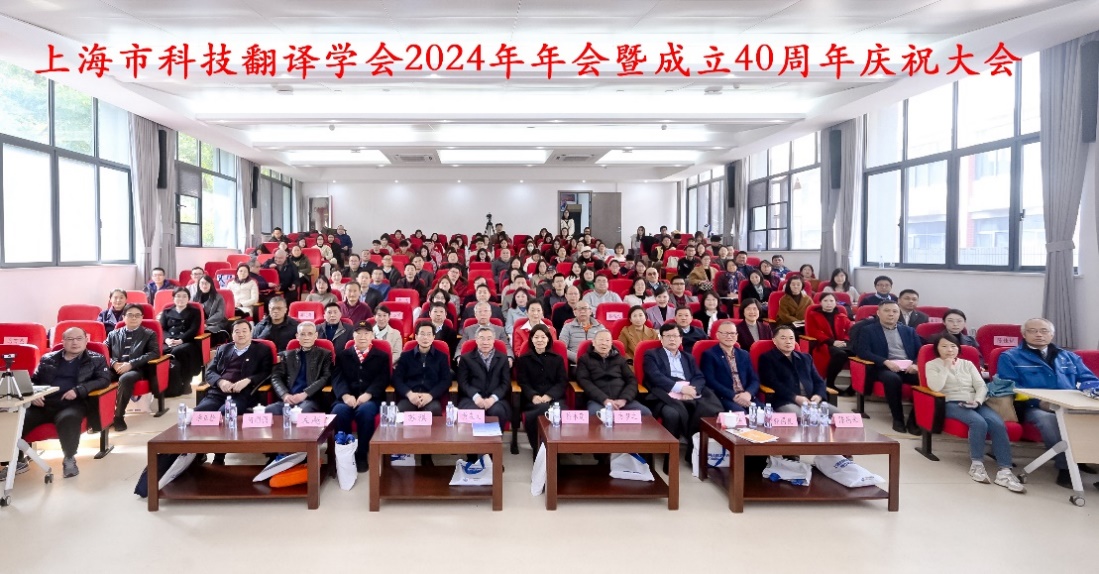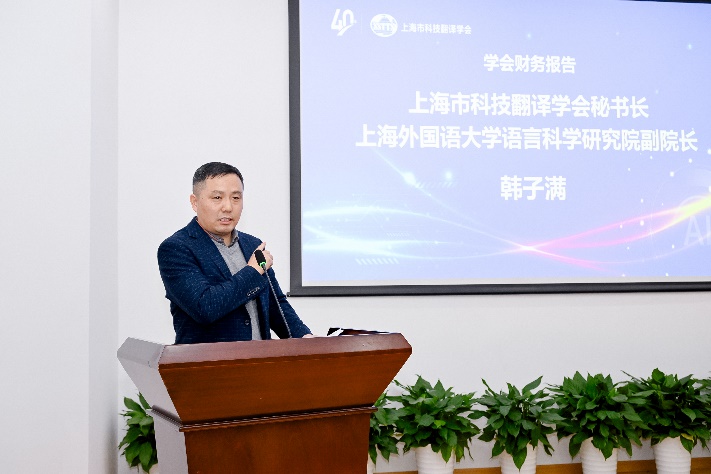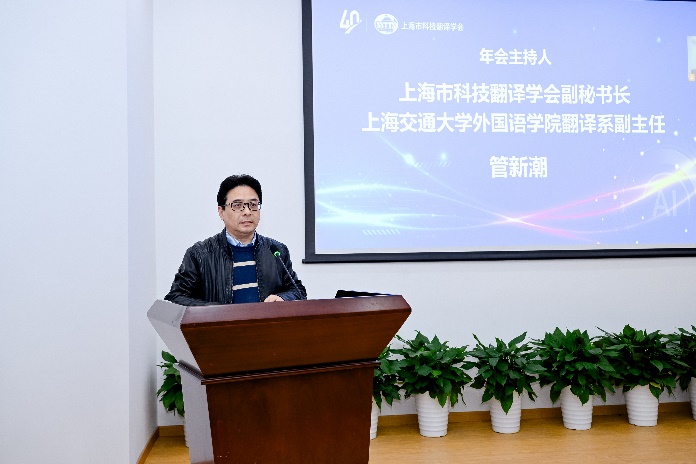AI empowers sci-tech Translation, Driving Disciplinary Transformation. Carrying Forward the Tradition of Humanities-STEM Integration to Forge Innovative Pathways. On March 8, 2025, hosted by SSTTS and co-organized by CFL, the “2024 Annual Conference & 40th Anniversary Celebration of SSTTS” were held in the auditorium of the CFL. The event brought together approximately 200 guests, including Cai Yonglian, Vice President of USST; Su Qi, director of the Shanghai Association for Science and Technology (SAST); and Huang Youyi, Executive Vice President of the Translators Association of China (TAC).
Presided over by professor Liu Qin, Dean of CFL and Vice President of SSTTS, the opening ceremony commenced with a welcome to all attendees. Vice President Cai delivered the welcome address, highlighting USST’s multidisciplinary development and its longstanding commitment to translation talent cultivation, academic research, and societal engagement. She congratulated SSTTS on its 40th anniversary and urged the experts present to leverage translation in addressing national strategic priorities and advancing Shanghai’s global aspirations to turbocharge the innovative development of sci-tech translation and translation technologies.
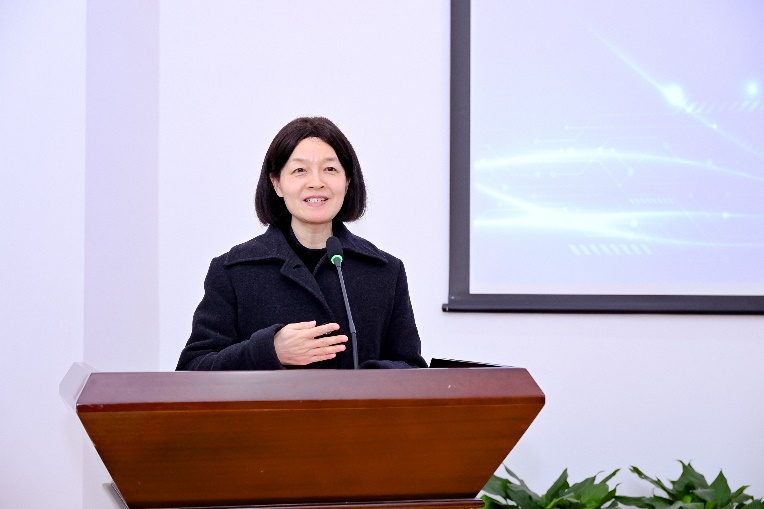
Speech by Vice President Cai
On behalf of the SAST, Su Qi extolled the Shanghai Journal of Translators of SSTTS for its pioneering spirit and role as a leading platform in applied translation studies. He praised SSTTS for trimming its sails to the wind of generative AI technologies.
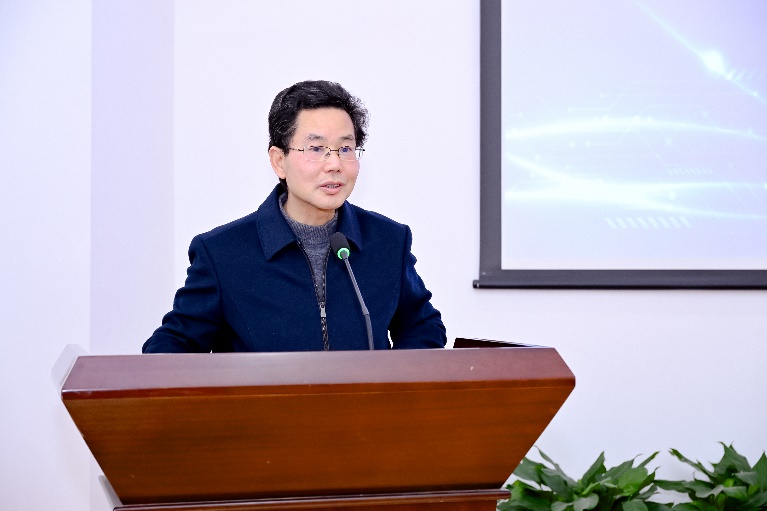
Speech by Su Qi
Professor Fang Mengzhi (6th president of SSTTS) walked the audience along the association’s four-decade development, and Zou Biao (7th president of SSTTS) emphasized the association’s alignment with national development and academic innovation. Incumbent President Hu Kaibao outlined future priorities, such as AI-driven translation education, historical research on Shanghai’s sci-tech translation, and university-industry collaboration.
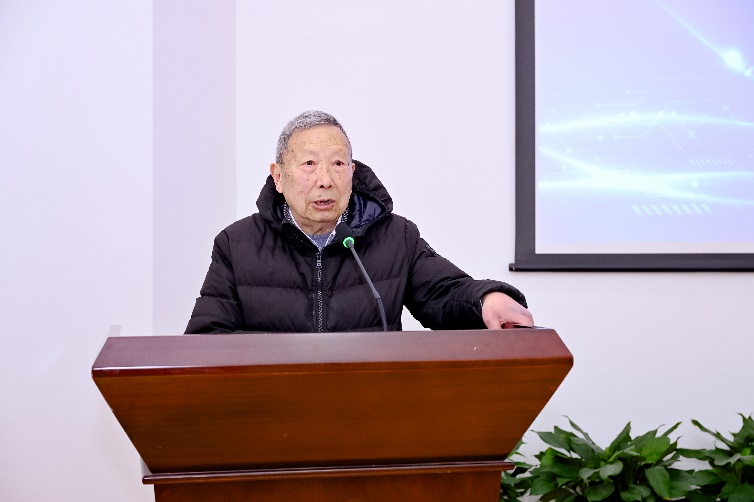
Speech by Fang Mengzhi
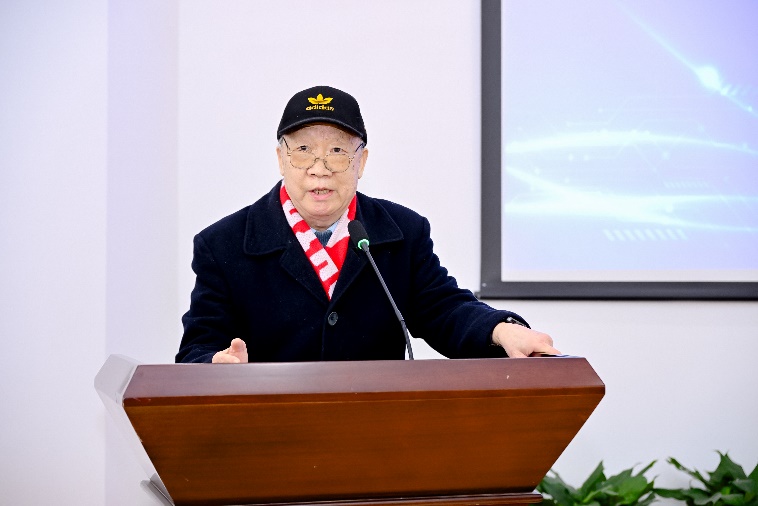
Speech by Zuo Biao
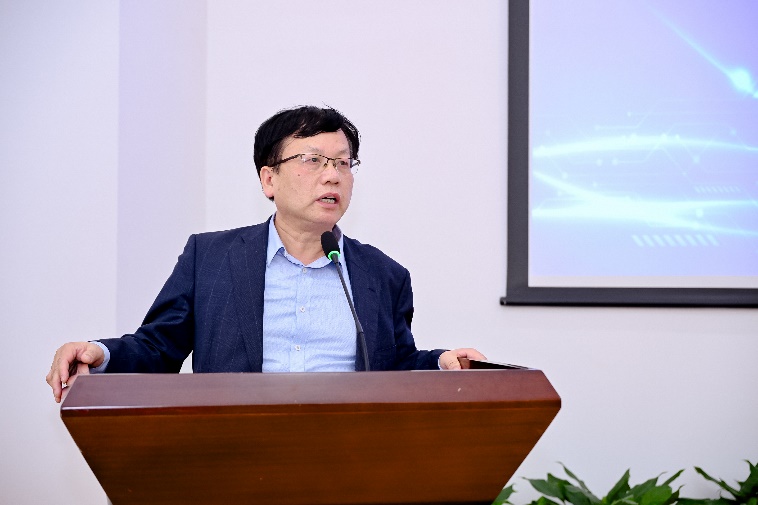
Speech by Hu Kaibao
Leaders and researchers from translators association of Hebei, Zhejiang, and Shanghai spoke highly of SSTTS’s contributions in sci-tech translation, academic exchange, international communications and talent cultivation and offered some suggestions in such fields as regional coordination, innovative disciplines and national strategies. Congratulatory letters from the Translators Association of China (TAC) and other academic organizations commended SSTTS’s academic leadership and industry-standard initiatives.
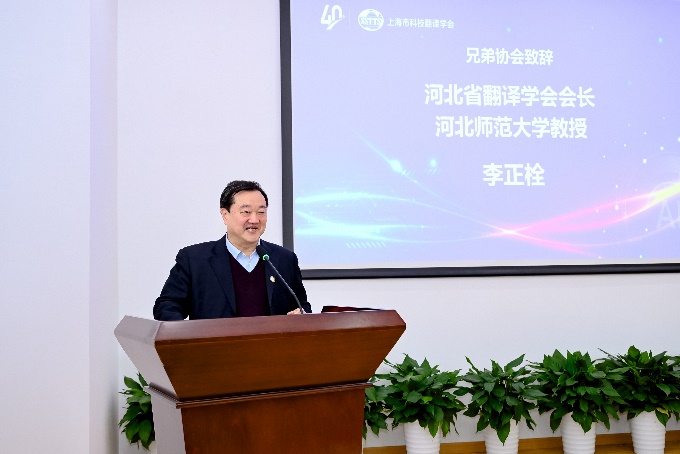
Speech by Li Zhengshuan
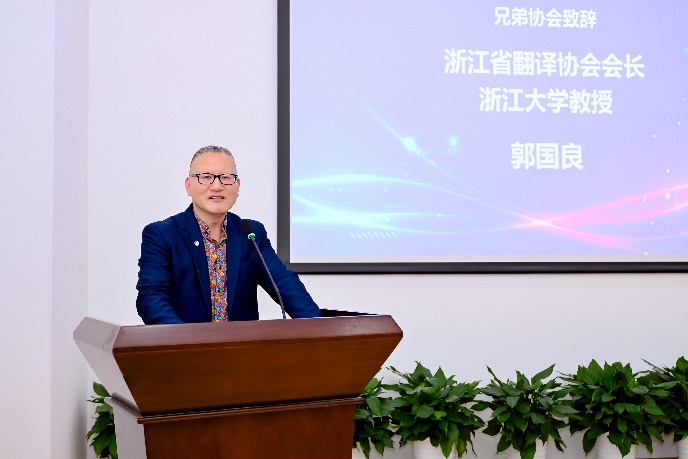
Speech by Guo Guoliang
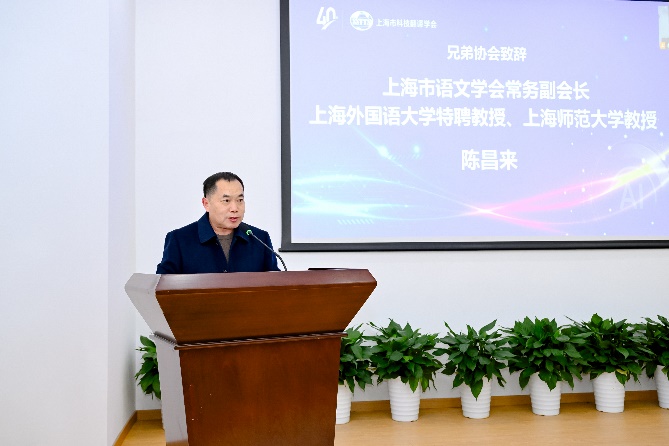
Speech by Chen Changlai
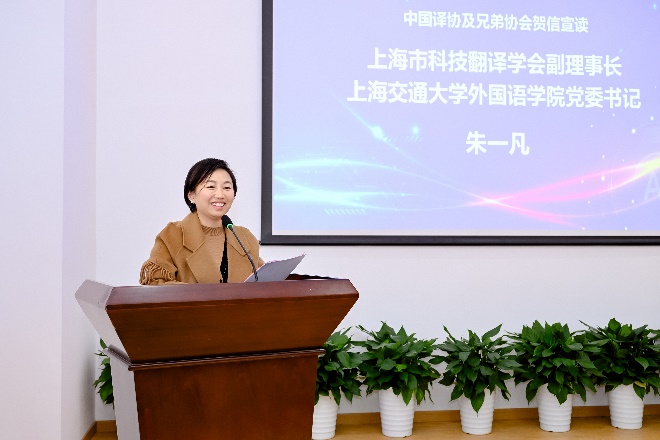
Zhu Yifan’s Reading of Letters of Congratulations
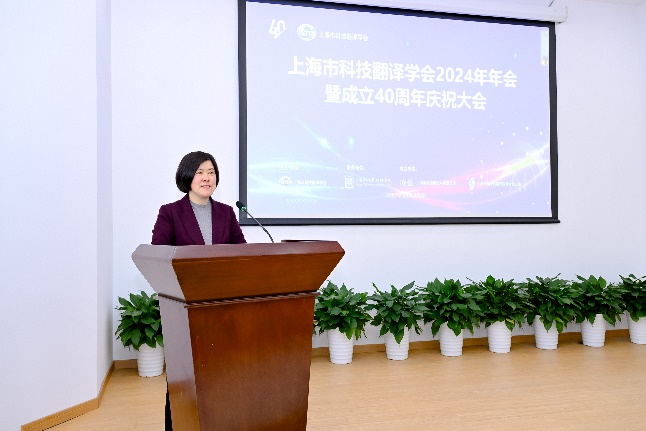
Liu Qin, The Opening Ceremony Moderator
During the awarding ceremony, Professor He Gangqiang (8th and 9th SSTTS’s President) was honoured with the Lifetime Achievement Award, 11 practitioners and 2 institutions with Special Contribution Awards, and 15 professionals with Outstanding Sci-Tech Translators. Notably, Prof. Wu Biyu and Prof. Liu Qin received Special Contribution Awards, while Prof. Chen Qi and Prof. Yang Benming were recognized as Outstanding Sci-Tech Translators, marking USST as the top-awarded institution.
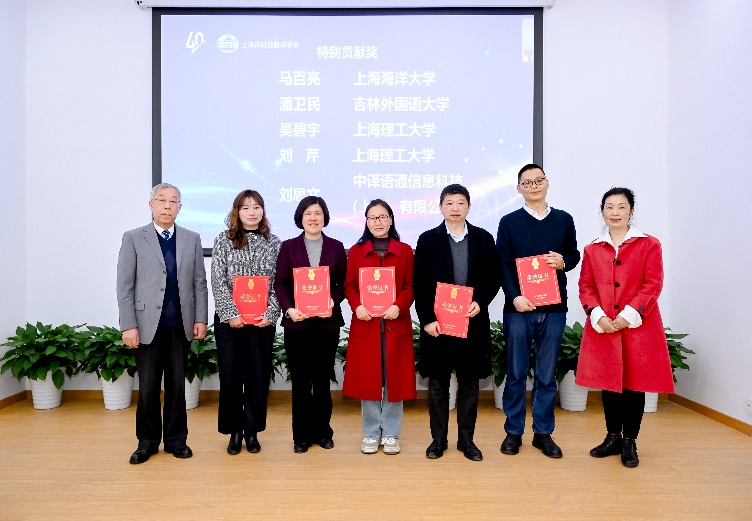
Recipients of Special Contribution Awards: Wu Biyu (fourth from the left) and Liu Qin (third from the left)
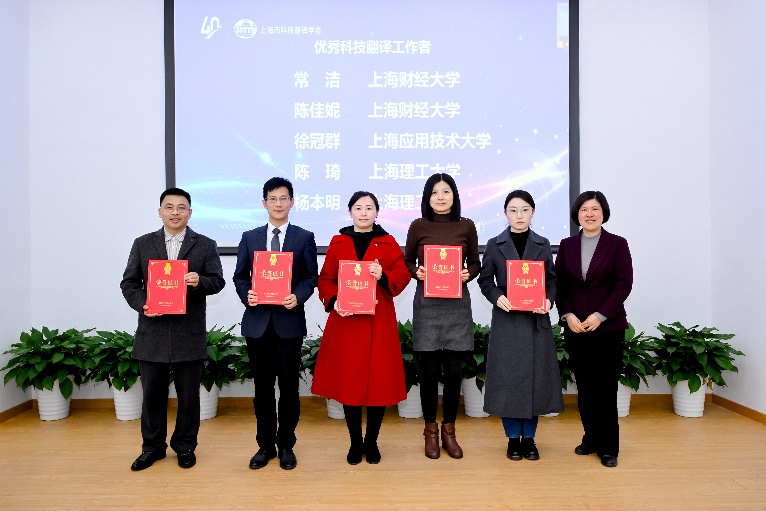
Recipients of Outstanding Sci-Tech Translators: Chen Qi (second from the left) and Yang Benming (on the far left)
The Keynote Speeches were presided over by Han Ziman (Secretary-General of SSTTS). Huang Youyi emphasized the growing global demand for specialized sci-tech translation and the elevation of translation practices as a high-end profession through AI integration. Liu Junping (President of Translators Association of Hubei, TAHB and Professor of Wuhan University) advocated interdisciplinary methodologies in translation historiography to foster theoretical innovation. Fu Jingmin (Editor-in-Chief of the Shanghai Journal of Translators and Professor of Shanghai University) analyzed trends and challenges in China’s translation research, calling for better adaptability in AI-era. Industry representatives Wu Xin (General Manager of Lindge Co., Ltd) and Hong Ximei (Partner of Shanghai YGYM Translation Service Co., Ltd) briefed the AI’s role in translation project management and talent development.
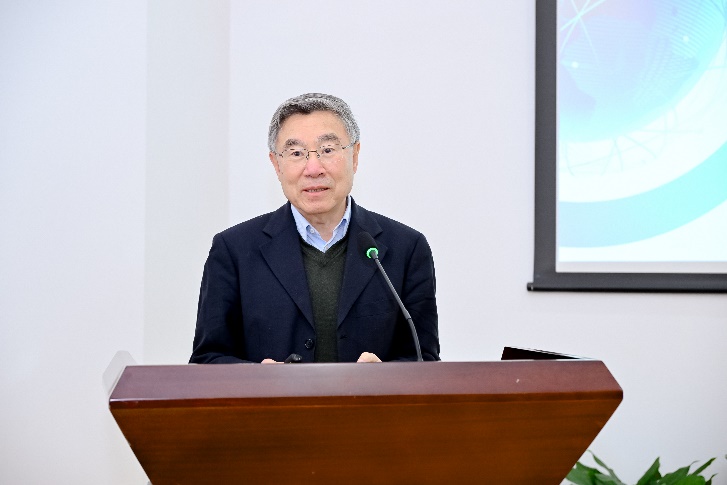
Speech by Huang Youyi
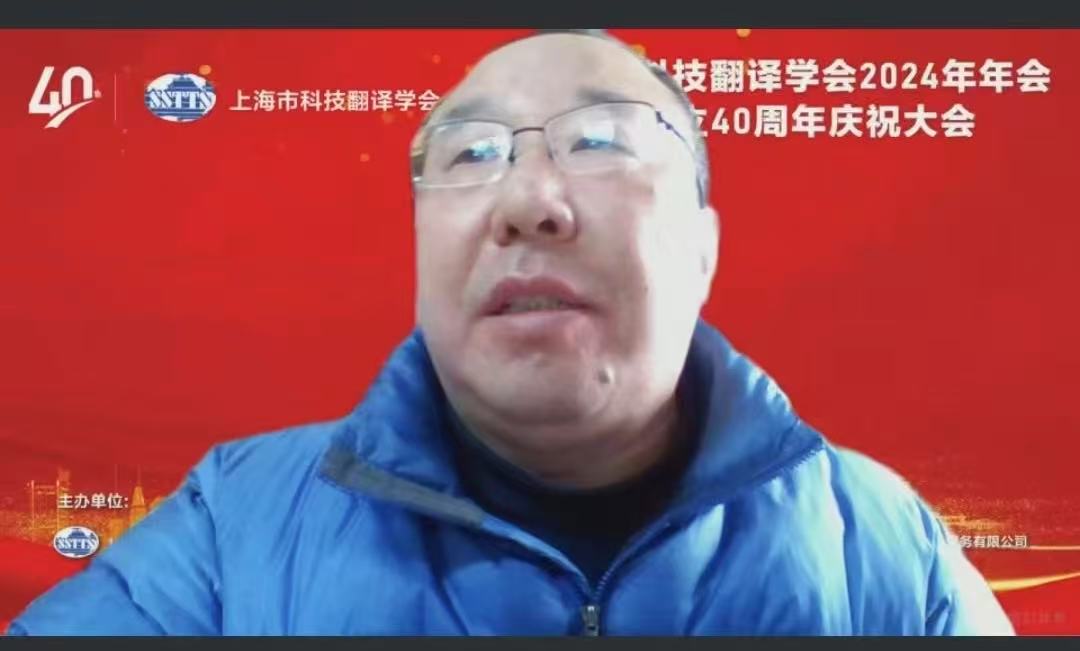
Speech by Liu Junping
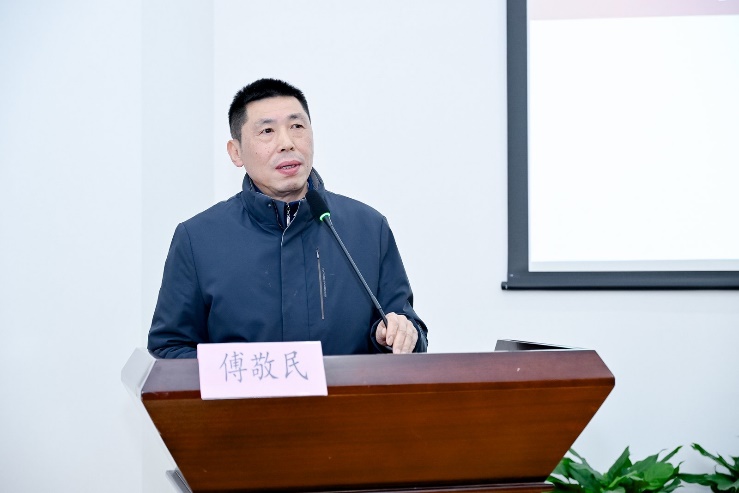
Speech by Fu Jingmin
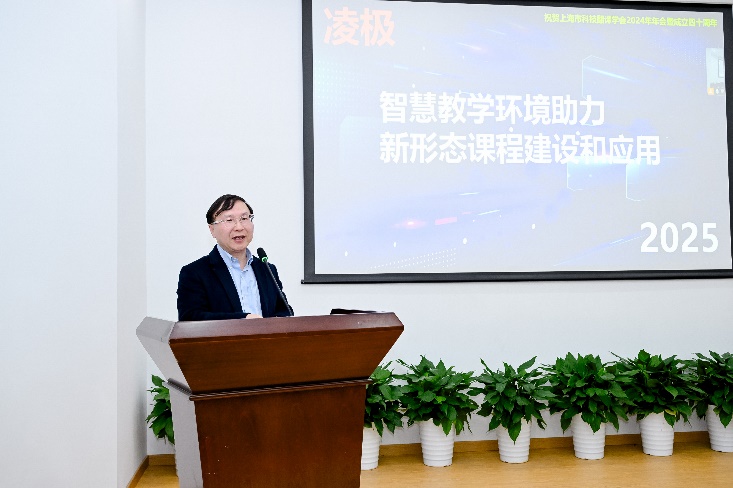
Speech by Wu Xin
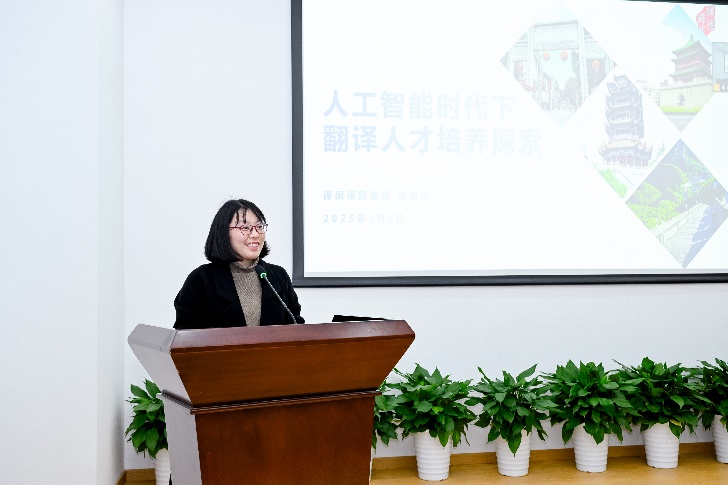
Speech by Hong Ximei
The annual meeting session was chaired by Deputy Secretary General Guan Xinchao. President Hu Kaibao presented the 2024 work report, highlighting achievements in “translation talent cultivation in the big data era” and outlining 2025 plans for major projects, talent development, and sci-tech translation and research. Secretary-General Han Ziman delivered the 2024 budget report, followed by unanimous votes of new nominees.
Budget Report by Han Ziman
In closing remarks, He Gangqiang acknowledged the council’s accomplishments and then urged SSTTS’s members to establish regular forums for young scholars to address AI-driven challenges in translation.
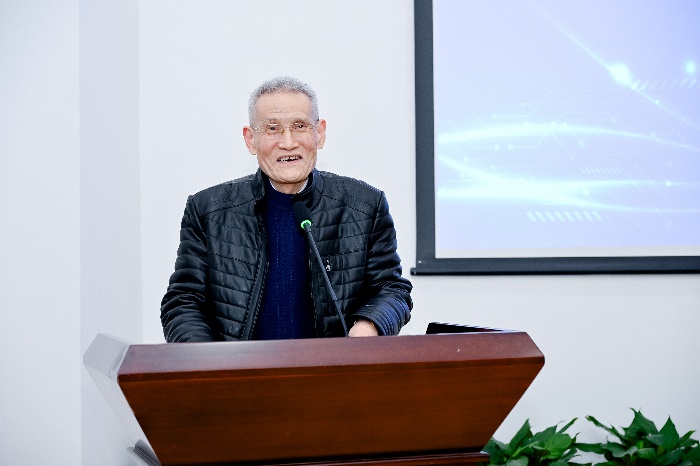
Closing Remark by He Gangqiang
Guan Xinchao, the Annual Meeting Session Moderator
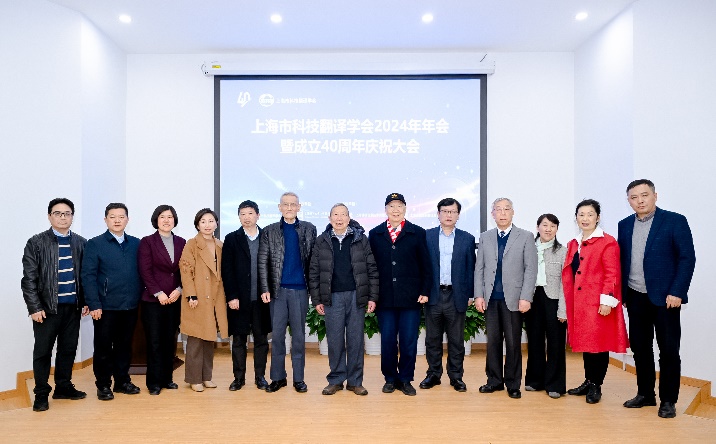
Group photo of Leaders
Before the conference, attendees paid a visit to the renovated CFL’s building. They were deeply impressed and believed that the new building would serve as a platform to cultivate linguistically skilled and innovation-ready professionals.
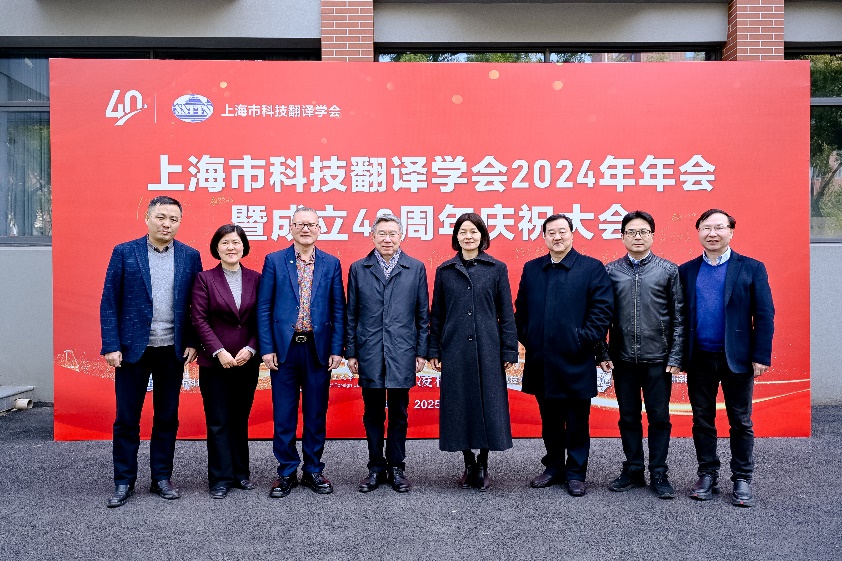
Pre-meeting Group Photo
This conference not only reviewed SSTTS’s four-decade development but also marked a new chapter for sci-tech translation in the AI era. The CFL pledges to deepen collaboration with SSTTS, to optimize disciplinary structures, and to leverage translation in order to serve major national projects and programs, thereby cultivating cohorts of accomplished translators and enhancing the international clout of China’s sci-tech translation.
